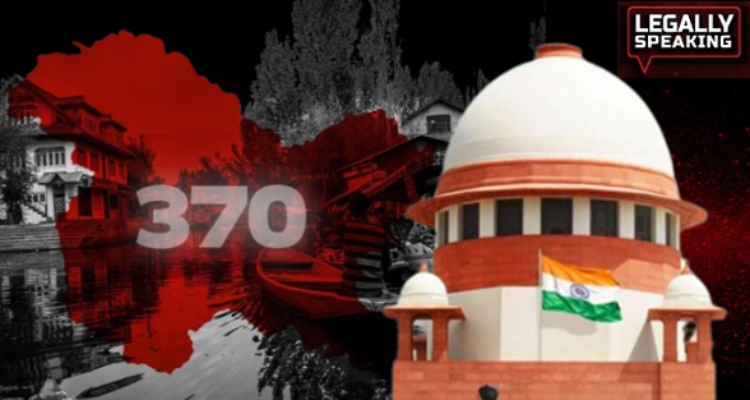
Petitions have been filed in the Supreme Court, seeking a reconsideration of its judgment that upheld the validity of the Union government’s 2019 decision to abrogate Article 370 of the Constitution, conferring special status on Jammu and Kashmir.
Dr. Hussain, President of the J&K People’s Movement, and Muzzafar Shah, President of the J&K Awami National Conference, informed ANI that review petitions have been filed in the apex court.
“Article 370 cannot be nullified. We have filed a review petition against the SC’s judgment on Article 370. We will argue it in court,” said Muzzafar Shah to ANI. Mohammed Yousuf Tarigami of CPI (M), the National Conference, Advocate Muzzafar Iqbal, and the PDP have also filed review petitions.
Last month, a five-judge Constitution bench upheld the Center’s decision on the abrogation of Article 370, emphasizing that Article 370 is a “temporary provision.” The Constitution bench, comprising Chief Justice of India DY Chandrachud, Justices Sanjay Kishan Kaul, Sanjiv Khanna, BR Gavai, and Surya Kant, stated that Article 370 was enacted due to wartime conditions and intended to serve a transitional purpose.
The petitioners challenging the abrogation argued that Article 370 was no longer a “temporary provision” and had acquired permanence after the dissolution of the Constituent Assembly of Jammu and Kashmir.
The Apex Court held that Jammu and Kashmir did not retain an element of sovereignty upon joining the Union of India. The court noted that Maharaja Hari Singh, the erstwhile ruler, proclaimed to retain sovereignty, but his successor Karan Singh declared that the Indian Constitution would prevail over all other laws in the state.
“The Proclamation reflects the full and final surrender of sovereignty by Jammu and Kashmir, through its sovereign ruler, to India—to her people who are sovereign,” added the apex court.
The court emphasized that the cessation of the Constituent Assembly did not imply the permanent continuation of Article 370. “The President was empowered to issue the order to abrogate Article 370,” the court added.
Acknowledging Solicitor General Tushar Mehta’s submission, the court highlighted the restoration of Jammu and Kashmir’s statehood, excluding the Union Territory of Ladakh. The Election Commission of India was directed to conduct elections to the Legislative Assembly of Jammu and Kashmir by September 30, 2024.
The court underlined that the restoration of statehood would occur at the earliest. The Constitution Bench’s verdict came in response to petitions challenging the abrogation of Article 370 and the bifurcation of the state into two Union Territories.
Various petitions, including those from private individuals, lawyers, activists, politicians, and political parties, were filed in the Supreme Court challenging the Jammu and Kashmir Reorganisation Act, 2019, which divided the region into two Union Territories—Jammu and Kashmir and Ladakh.
On August 5, 2019, the Central government announced the revocation of the special status of Jammu and Kashmir granted under Article 370 and the division of the region into two Union territories.




